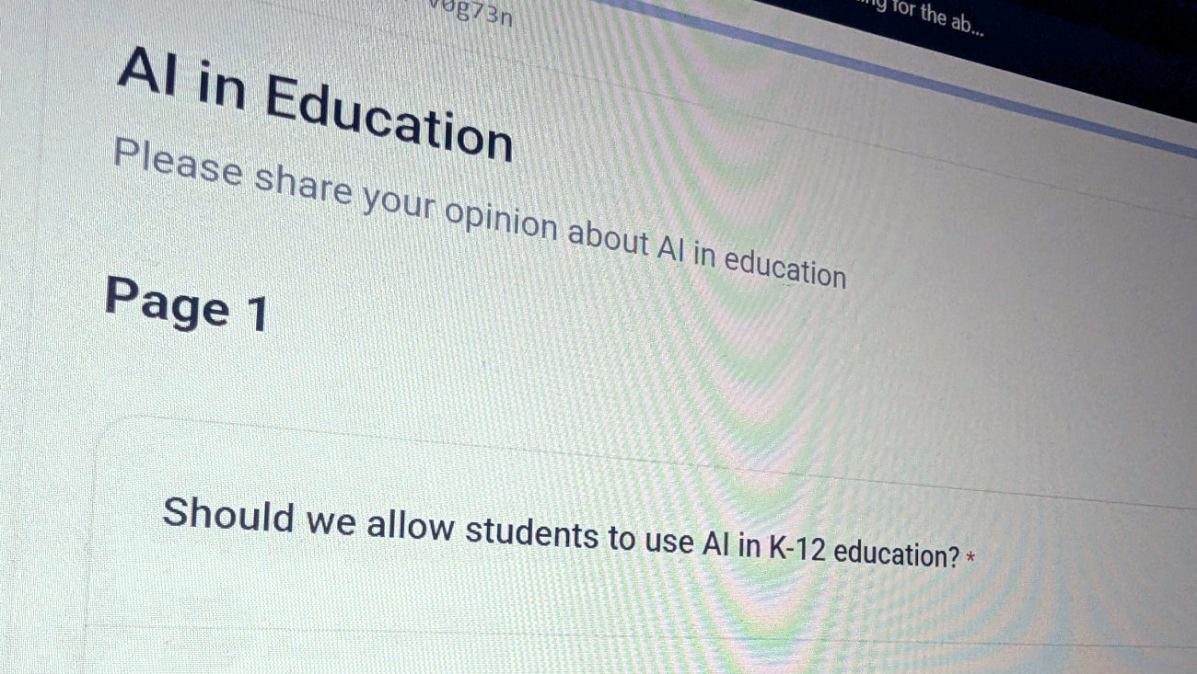Washington, D.C.’s civic engagement platform is bringing residents into AI policymaking

Washington, D.C.’s tech office is crediting its civic-engagement platform with helping city officials to better understand how residents feel about artificial intelligence, and to get them more involved in policymaking decisions.
The platform is called Deliberation.io, and it was built by the D.C. Office of the Chief Technology Officer, with the MIT Governance Lab, the Stanford Institute for Human-Centered AI and the Stanford Digital Economy Lab. It launched in July, and over the last four months, residents have shared their perspectives, explored viewpoints from other participants, voted on comments and answered several follow-up questions — all anonymously. It’s all based around one central question: “How much should DC Government be involved in supporting AI innovation?”
Stephen N. Miller, Washington’s chief technology officer, said the platform has enhanced civic engagement because it offers a “structured deliberative process” that allows residents to continually refine their comments and perspectives as they explore diverse viewpoints.
“They come in, they respond to a policy question. They can explore the other responses from other participants. They can vote on the comments that resonate with them. They can answer follow up questions that we put together with the Deliberation.io team that furthers that conversation,” Miller said. “And then on top of that, it’s using sophisticated algorithms that will surface a representative range of perspectives, instead of just amplifying the loudest voice or the most extreme position part. It’s like quality over quantity.”
Miller said the platform was built with privacy and public trust in mind. He said that although MIT and Stanford approached his office with the idea, it was more appealing to work with them than a commercial vendor because such partnerships help improve transparency, allowing the public to see exactly how their feedback is being used.
“We work with them on everything from understanding data retention, making sure that everything is anonymous, making sure that the data is stored and protected, making sure that access to the data is limited to our team and their team,” he continued. “An academic research model is open, a commercial model is closed, it’s privatized. But in this case, the public is able to scrutinize what they’re doing. They’re able to scrutinize our data as well. And it gives us that ability to improve upon everything over time.”
This focus on accountability also mirrors the way the city thinks about the role of public input on its AI strategy. Last year, Mayor Muriel Bowser signed an order directing new work on AI that spans through next year. But it’s crucial, Miller said, that residents are involved and that any forthcoming policies reflect their needs and perspectives, which will lead to more representative and actionable outcomes.
While the platform does not verify that participants are Washington residents, Miller said this is optimal because the city also wants to hear from commuters. Lula Chen, research director at the MIT Governance Lab, wrote in an email that most who are using the platform “are D.C. residents and employees spread across all 8 Wards, with some additional participants from the Maryland and Virginia area.”
“Rather than us having a predetermined policy position, rather than us having a predetermined outcome,” Miller said, “we’re using Deliberation.io to ensure that the D.C. residents and those that are interested in how we’re moving forward with AI have a meaningful voice in shaping our policy direction, and it reflects our commitment to a participatory government, right? And our belief is that the best policy decisions … emerge from genuine public discourse.”
After several months of testing, the city’s technology office is still gathering feedback through the platform, and an official conclusion date for the testing phase has not been set. Based on the success of the platform, Miller said, the technology office is exploring other topics, beyond AI, on which to engage residents, such as local budgets and economic development.




